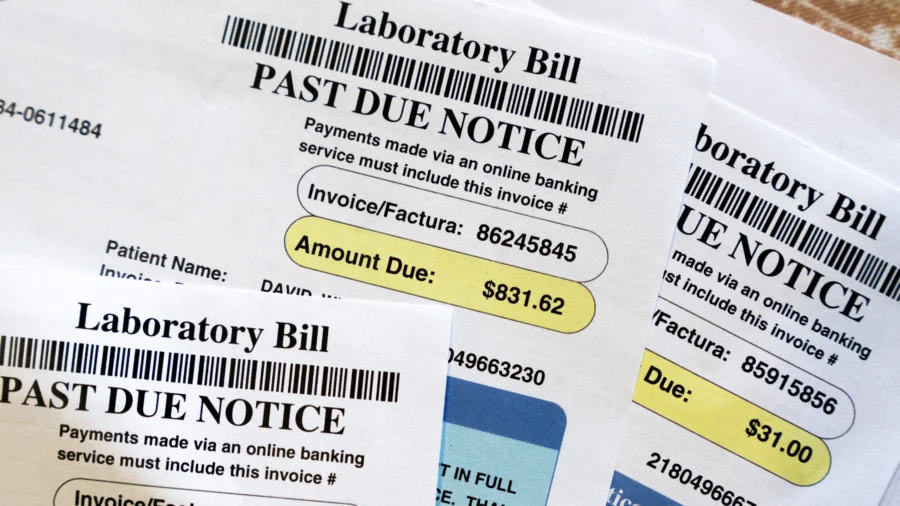The Biden administration announced a new rule on Jan. 7 that will remove an estimated $49 billion in medical debt from the credit reports of approximately 15 million Americans.
The Consumer Financial Protection Bureau (CFPB) said the decision aims to enhance privacy protections and prevent debt collectors from exploiting the credit reporting system by pressuring borrowers into paying bills they may not actually owe. The rule will prohibit the inclusion of medical bills on credit reports used by lenders and ban lenders from using medical information in their lending decisions.
“People who get sick shouldn’t have their financial future upended. The CFPB’s final rule will close a special carveout that has allowed debt collectors to abuse the credit reporting system to coerce people into paying medical bills they may not even owe,” CFPB Director Rohit Chopra said in the announcement.
The agency’s research previously revealed that medical debt on credit reports is a poor indicator of a person’s ability to repay loans. According to the CFPB, the situation has led to thousands of consumers being denied mortgage applications—consumers the agency says would otherwise be able to repay their loans. The bureau expects the new rule to result in the annual approval of around 22,000 additional applicants for affordable mortgages.
The agency said Americans with medical debt on their credit reports could also see their credit scores increase by an average of 20 points.
This action follows changes made by the three major credit reporting agencies—Equifax, Experian, and TransUnion—which had previously announced they would remove certain types of medical debt from credit reports, including collections under $500. This decision came after the CFPB raised concerns about medical debt credit reporting in early 2022, according to the bureau.
The new rule ends a special regulatory exception that allowed creditors to use certain medical information in lending decisions. The CFPB said that this change will also prevent lenders from using information about medical devices, such as prosthetic limbs, as collateral for loans.
Under the new rule, consumer reporting agencies are prohibited from including medical debt information on credit reports and credit scores sent to lenders. However, lenders will still be able to consider medical information for legitimate reasons, such as verifying medical-based forbearances or considering certain benefits as income when underwriting.
The latest change is part of a broader effort targeting debt collectors who use deceptive practices related to medical bills. In October, the agency issued a guidance clarifying that debt collectors violate federal law when they collect on inaccurate or legally invalid medical debts. In 2022, the bureau published a report detailing the extensive impact of some $88 million of medical debt on consumers’ credit reports.
According to the CFPB, the new rule will take effect 60 days after its publication in the Federal Register.

